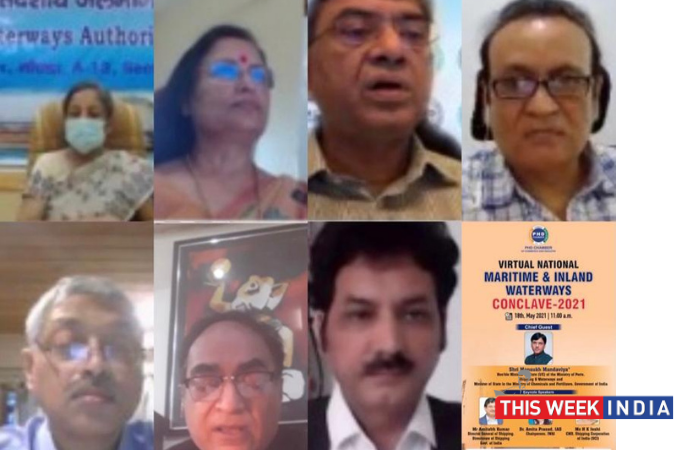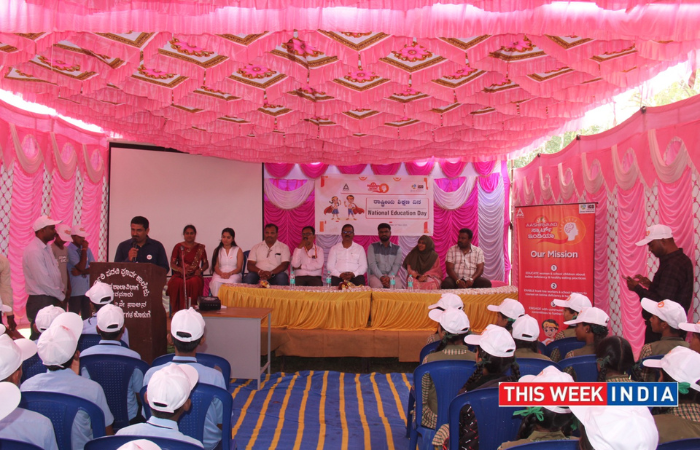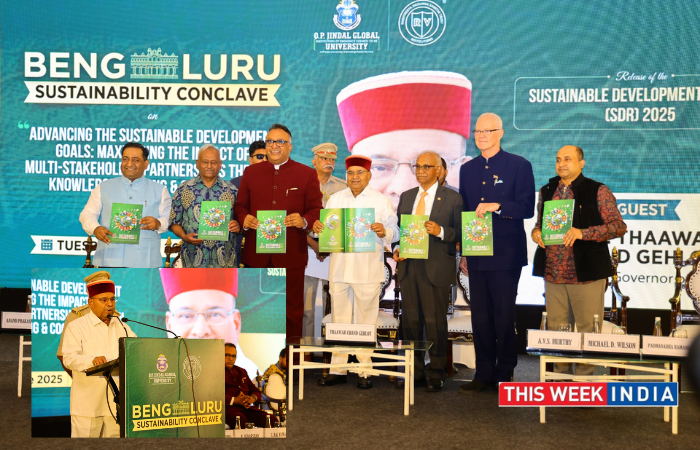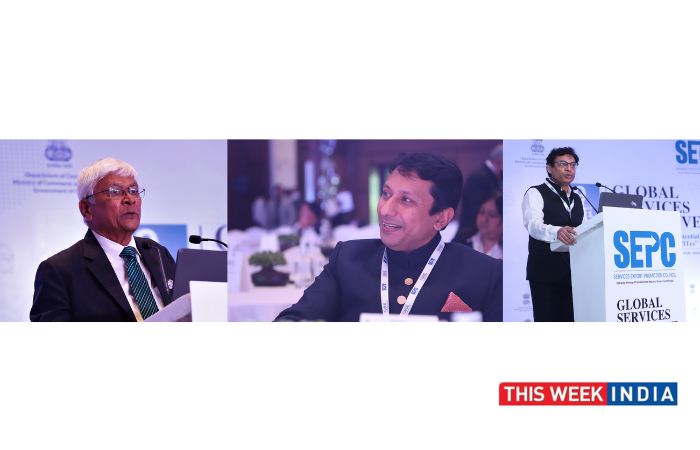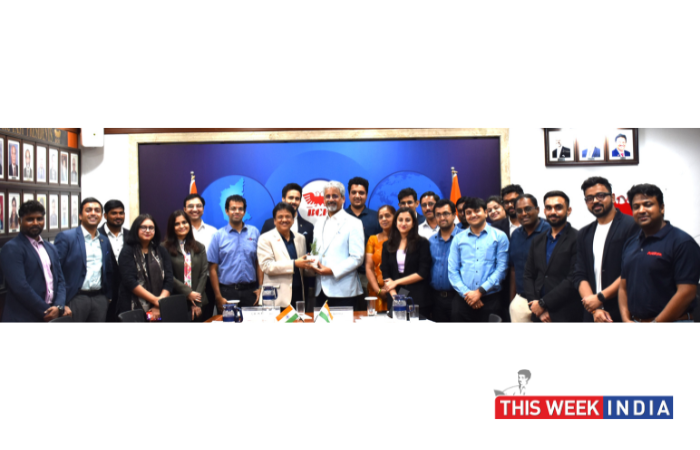With the government of India’s vision to make India a 5 Trillion economy, the aatma nirbhar initiative, and the continuous focus on sustainable development all coincide with the need to have a strong maritime eco-system. The day is not far when we will have a completed logistics system at par with those of developed nations. With the vision of vocal for local, we need to ensure that we are truly being a global maritime nation and need to work on logistics cost, mentioned Ms. H K Joshi, Chairperson, and Managing Director, Shipping Corporation of India, Govt. of India in Virtual National Maritime and Inland Waterways Conclave-2021 organized by PHD Chamber of Commerce and Industry.
Ms. H K Joshi mentioned that MSMEs are the growth engines of our country, are based out of tier 2 cities that require enhancement of connectivity and cargo-carrying capacity. The accessible hinterland can also open up new markets. We need to have serious commitments towards sustainability and building sustainable business models.
She deliberated that India has an extensive network of potential, navigable inland waterways in the form of rivers, canals, etc, has huge cargo to move around, but the infrastructure is a challenge in reviving waterways commercial. Challenges persist but freight transportation by waterways needs to be utilized properly in the country. The business of transportation must be profitable and operationally successful without harming the business environment of the future. Inland waterways have the potential to open up large and accessible hinterland for the supply of good which can be transported at a lower cost.
Ms. H K Joshi emphasized that essential commodities have scope for utilizing the multi-modal network for optimal connectivity. India’s social and industrial sustenance shall continue to be highly dependent upon the huge shipping apparatus with the blue economy, an important contributor towards India’s growth. We need to focus on coastal shipping and inland waterway and transportation and make a revolution in the Indian logistics sector.
Ms. Joshi emphasized that the multimodal web of water, road, and rail will help the region’s industries and manufacturing units swift seamlessly between different modes of transport and bring the competitiveness of Indian products to the global markets.
She also shared that Maritime India Vision 2030 and Sagarmala Programme are very well integrated and lay emphasis on port-led industrialization to improve the country’s logistics sector along with other benefits like reduced vehicle pollution, reduced rate of accidents which will benefit the economy overall. The maritime sector consists of a vast area of business and infrastructure such as ports, shipping, shipbuilding and recycling, multi-modal logistics, direct port development, and inland waterways. The Indian Government has played a proactive role in heralding policy changes and providing a conducive environment to the businesses for encouraging investments in these sectors.
Dr. Amita Prasad, IAS, Chairperson, Inland Waterways Authority of India (IWAI), Govt of India while giving an overview about inland water transport sector, mentioned the key interventions undertaken for the development of Inland waterways. She shared the challenges and strategies adopted by IWAI to mitigate and the challenges. She emphasized that while Maritime India Vision has prioritized areas like promoting cargo handling; river cruise tourism and urban transport through waterways, the private sector needs to step up and take advantage.
Capt. Punit Prakash, Director, SEROS Shipping Pvt Ltd while talking about Coastal Shipping, Hinterland Connectivity, and Multimodal Logistics mentioned that cost plays a pivotal role, we need to be competitive about it and shipping is a capital investment industry that needs hand-holding for smooth functioning.
Mr. Sanjay Aggarwal, President, PHD Chamber of Commerce and Industry in his presidential address deliberated about India’s focus towards maritime and lauding the numerous initiatives undertaken by the government, mentioned that these initiatives have aimed to develop river Ganges as a safe mode of navigation has significant economic implications, especially in the context of passenger and freight movement of essential raw materials will help in the promotion of greener mode of transportation at the same time help in overcoming issues like transporters strikes and road blockages.
Mr. Aggarwal emphasized that the revival of inland waterways in India is a new step toward economic development as it could be the roadmap for the development of multi-year, multi-waterway rejuvenation of river basins across the country. Integration of waterways with national waterways with shipping helps reduce the logistic cost in the country.
Mr. Sudhir Hoshing, Chair, Infrastructure Development Committee, PHD Chamber while giving an industry perspective mentioned that we need to make an effort to bring together the government, industry, and all the relevant stakeholders on the same platform so that a road map could be strategized & designed which can enable to create a sustainable environment to fasten the pace of development of the Maritime and Inland Waterways Sector in India.
Mr. Ashish Wig, Mentor, Infrastructure Development Committee, PHD Chamber proposed a formal vote of thanks to the august delegates and participants.
The conclave was moderated by Dr. Ranjeet Mehta, Deputy Secretary-General, PHD Chamber, and witnessed the participation of many industry stalwarts around the country. PHD Chamber of Commerce and Industry’s conclave was supported by the Annual Sponsors namely DLF India; Multani Pharmaceuticals Ltd; JK Tyre & industries ltd; Marble City; Paramount Cables ltd; SMC Investments and Advisors Limited; Blossom Kochhar Aroma Magic; DCM Shriram Industries Ltd; Radico Khaitan ltd and Timberworkz.

